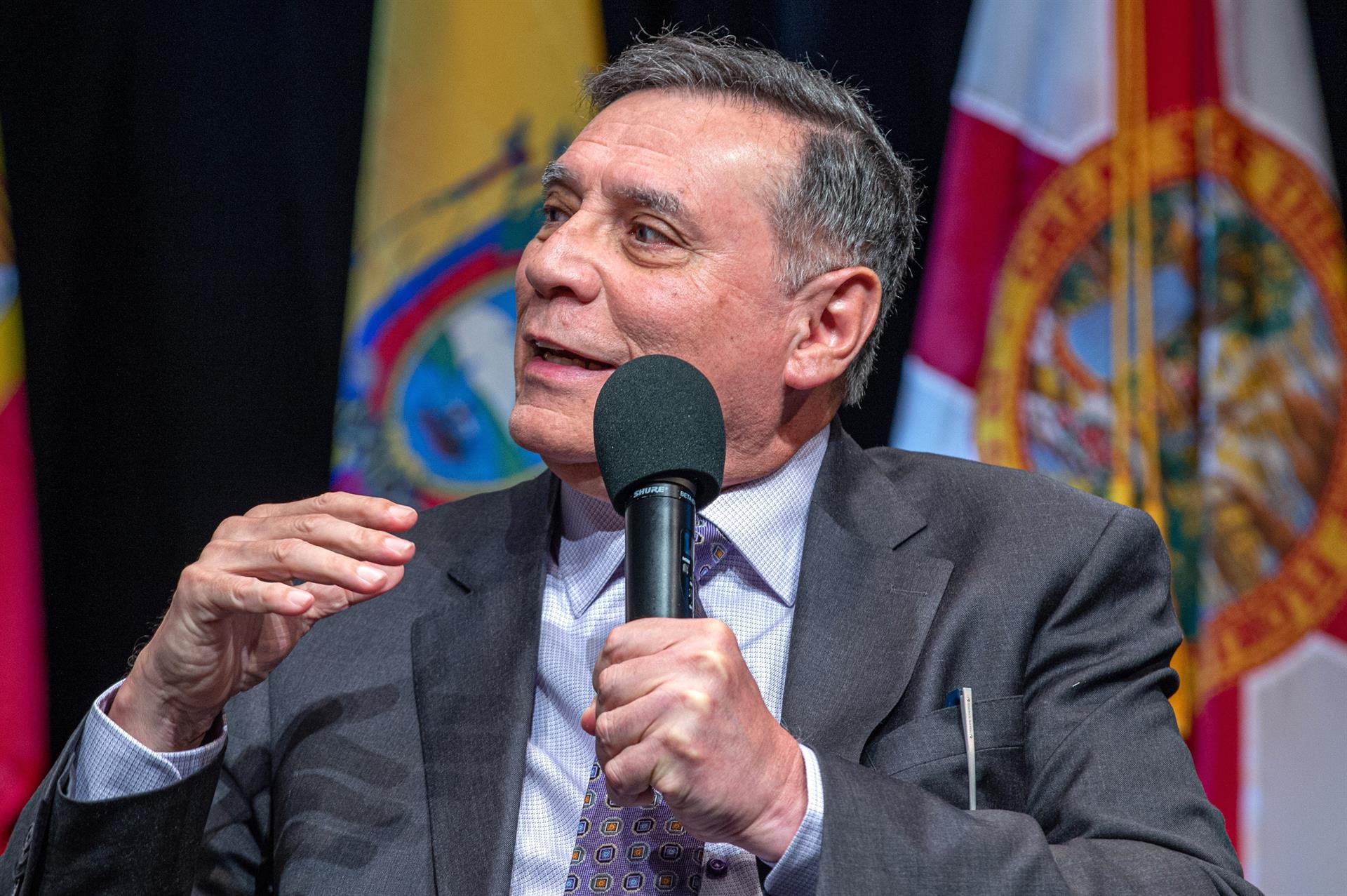RIO DE JANEIRO, BRAZIL – Former Ecuadorian president Jamil Mahuad (1998-2000) evoked the late Argentine soccer star Maradona on Thursday, when defending his decision to dollarize Ecuador, a measure that he believes “a historic success” even though it cost him the post, and given that in the long run, it has stabilized the fragile national finances.
To my detractors, I would quote a phrase of Diego Maradona: “When they passed the ball to me, I tackled it, I faced and tackled it, because that is where you make yourself respected, that is where you become a leader,” said Mahuad in the presentation this Thursday of his book “Así dolarizamos al Ecuador” (How we dollarized Ecuador) Ariel publishing house, Grupo Planeta.

More than two decades after the resolution, which caused a financial, economic, and social drama in the country, the 71-year-old former president defended it, warning that his book “is not the only truth”, but it is certainly “the truth told from inside the national government”.
“It is the truth written by those who made the decision. We present it with humility; we want to make a contribution not only to the conjuncture but to the thinking of Latin America,” he said.
SUPPORT FROM FORMER COLLEAGUES
In a telematic act that counted with former Brazilian President Fernando Henrique Cardoso and Chilean President Eduardo Frei, and the former chief economist of the IDB, Venezuelan Ricardo Haussman, Mahuad presented his “truth” as a solution to problems that at the time were insurmountable.
“I know what it cost Mahuad, what he did for his country, and now I see that it worked. That fills me with joy. He had the courage both in the peace (with Peru) and in the dollarization. You have to have leadership, and leadership has the ability to make decisions in difficult times,” Cardoso stressed.
For his part, Frei saw the newly written testimony of Mahuad, who went into exile in the U.S. after being overthrown and sentenced to prison for embezzlement, as a contribution to all Latin Americans to “learn from our mistakes”, to “learn from that history and build a better future”.
“I congratulate Jamil for his courage to present this book,” he said at the meeting, which was linked by the Internet to participants in Quito, Bogotá, São Paulo, Santiago, and Washington.
Dollarization, the monetary system still in force in the country, was introduced in January 2000 after a painful banking degeneration that led to the collapse of numerous entities in the country. The State had to inject liquidity to rescue them.
“I was very impressed to see a president who deeply understood the seriousness of the situation he had inherited, who felt the difficulty felt by Ecuadorians and who worked day after day until he was able to shape the decree until he announced the dollarization,” said Hausmann.
MEMORIES OF A HISTORICAL SUCCESS?
In the book, Mahuad sets out what he considers the “memories of a historical success” and tries to explain that the dollarization arose in a context of excessive devaluation of the sucre (former national currency), which generated hyperinflation that -according to the former president- put Ecuador on the way to becoming a failed State.
Critics say the financial crisis and dollarization led to the impoverishment of the population and resulted in massive emigration of Ecuadorians to the United States, Spain, and Italy.
The second part of the book includes an anthology of texts by members of his government team and international consultants, who explain the background, the discussions that motivated it, including episodes of the moments of tension with the IMF and the bondholders of Ecuador’s private foreign debt.
Source: efe

